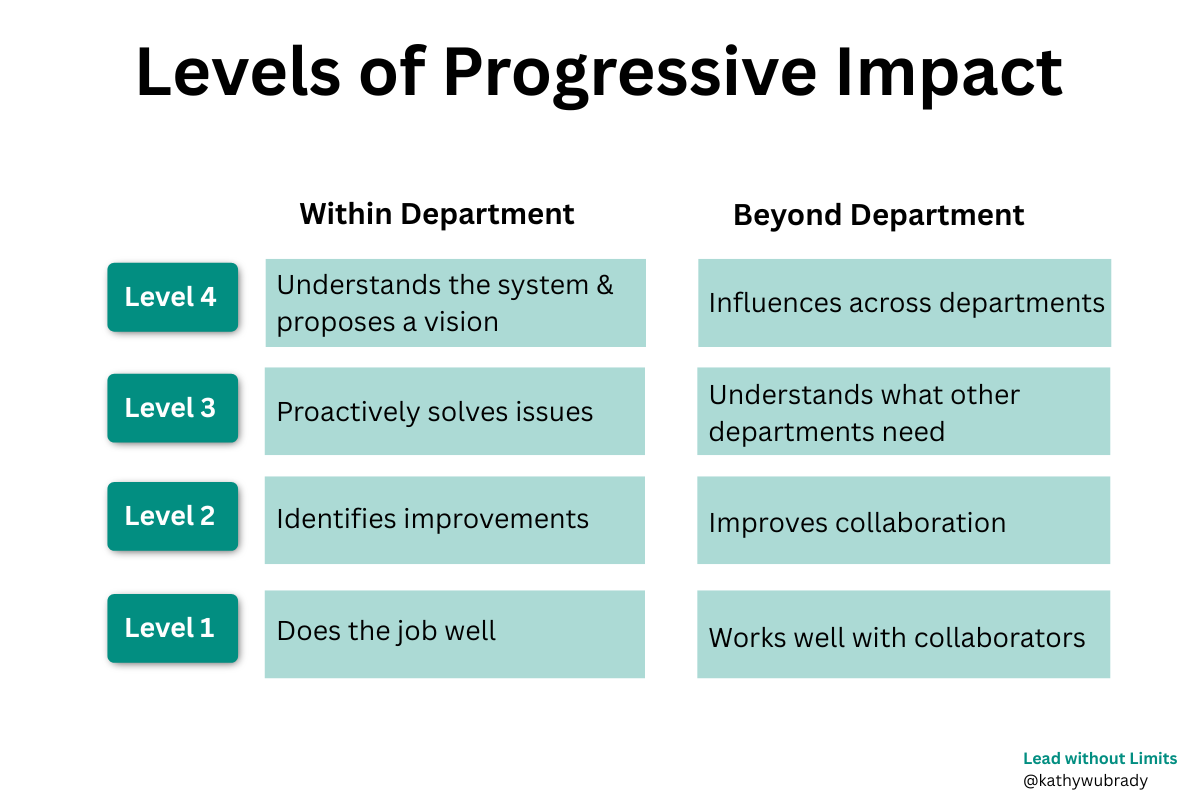Invest in Your Highest Potential Talent Like Your Career Depends on it Because it Does
Help them level up so that you can build the capability and capacity of your team.
One week I was COO and the next week, I was CEO.
The Board wanted to change things immediately, giving me no time to prepare. I had to shift focus completely onto assuming my new role, one I hadn’t expected.
It was just the start of Q1. My now former team of operational managers embedded into each functional team weren’t expecting this change either. We had a number of critical initiatives kicking off.
But they were no longer going to get any oversight from me.
No balls were dropped. No one missed a beat.
How? Because I had progressively developed my team of high potential, high performance players.
They were elite operators who were excellent at their jobs, built trust across the organization and could lead across functions, with a company mission first mentality.
I rose to the occasion because my team was ready to lead in my stead.
Your ability to lead is limited by your team’s capability and capacity.
As someone who loves to play hero, delegating to my team has always taken intentional effort. It’s only when I realized that my success was capped by their success that I committed to hiring and developing top players.
When you have a high-performing team, you are free to be more strategic as a leader. You have more time to anticipate, plan, and respond to changes in the business.
Too often, leaders are stretched too thin. They don’t have the space to be creative or patient in their approach. Everything becomes an emergency and a distraction.
In addition, too many leaders ignore succession planning. Don’t create unnecessary risk and stress for the organization. Groom someone to take over your role. That opens you up for more opportunities guilt-free.
That’s exactly what happened to me. I didn’t intend to assume the CEO post. But I could do it without disruption because my team was filled with top talent that I had invested in and grown.
It all starts with hiring well.
I was fortunate that I was able to build my operational team from scratch. I cherry picked people who were excellently suited to their roles in revenue, technology, and digital operations.
When you hire people who have the raw skills and who want to grow, you have the foundation for great talent. You can’t teach motivation, so make sure it’s there at the start.
Investing in employees starts with interviewing them well. Understand what motivates them and align that to your business needs.
Alignment makes management easy. Misalignment makes it nearly impossible to maximize the employee’s potential. For example, if you need someone to become a data expert, but they are highly resistant or struggle with numbers and data systems, it will never work.
Don’t set someone up for failure. Hire well.
Know your highest potential employees well.
High potential talent is sometimes viewed as different from high performance talent. In this post, I’m assuming that all high potential talent has already demonstrated positive performance.
What makes them high potential is that you have evidence of the individual going above and beyond their role, indicating that they can do more. It might be that they are showing skills beyond what their role requires, or that they show signs of applying what they are learning quickly.
Don’t simply make judgments in isolation. Ask for feedback from others, but always have your own observations.
Set clear expectations and provide a roadmap for growth.
It might seem obvious, but don’t keep you intentions mysterious. Make sure you let your top talent know that you want to help them grow. If you don’t get their buy-in, the opportunities you throw their way might confuse them rather than energize them.
Be clear about what it means to level up. Here is one example of how I define performance progress for employees based on impact within and beyond their department:
Each level represents their capability in terms of expertise, proactivity, and ability to make change happen.
In a world where very few operations are siloed within one department, I have always expected top talent to be able to collaborate and influence well, not just execute within their domain.
When you set expectations up front, it makes it far easier for your direct report to ask questions and lean into the process.
If they feel they have the ability to do more, they can request that you give them more or they proactively find new opportunities, feeling confident that it will align with your expectations.
Assign work thoughtfully, based on what the employee has demonstrated.
You wouldn’t give an elementary school student high school homework and vice versa. Treat your employees the same way.
If it’s an employee’s first time playing at Level 3, don’t give them the highest profile, hardest project to start. Delegate work based on their experience.
Always allow room for mishaps. This helps foster more trust. Even top talent needs to feel safe to fail and you need to trust that if they misstep, the result won’t be catastrophic. Only then will they have the courage to step into areas that are unfamiliar and truly grow.
Be nimble and recalibrate your approach as needed.
If you are assigning a higher-stakes initiative, get more specific on expectations:
Clarify checkpoints: When will you want to see work and verify they’re on the right track?
Align on escalation paths: If they need help, who should they go to first?
Pre-address what happens if they don’t hit the mark: You don’t have to commit to this precisely, but I find it helps reduce fear and uncertainty about what will actually happen if something goes wrong.
Don’t be rigid and guide your direct report to do the same.
As you each learn what works and what doesn’t, commit to discussing it in your 1:1 meetings. Ask your direct report to come ready to share what they’re learning, where they’re struggling, and how it’s impacting their capacity.
Growth is important, but it’s not more important than getting the most critical work done and done well.
Your Turn
I’d love to hear about frameworks or methods you’ve seen work well to develop top talent.
Help the Lead without Limits community by sharing your experience, either as a leader or as the person being developed, in the Comments.
Thanks for reading, and if you found this post valuable:
❤️ Tap the heart so more people find it
📤 Share with a friend who might need this
✅ Subscribe for weekly posts that will help you lead without limits
PS: Ready to find your path to more meaning and success?
I have 1 more coaching spot still open for Q3.
If you’re ready to invest your growth, book a free 15-min strategy call with me.
May you lead without limits,






Absolutely. The best leaders I've worked with made me better than I thought possible - and that investment paid dividends for everyone.
Great experience! I love the levels of progressive experience. I will pass it along.